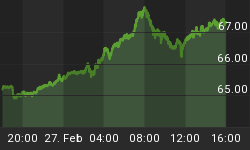Most people, provided they have a minimum of experience, know that taking a bone from a dog is a risky proposition. In terms of political power, few dogs are bigger than the American voting public. Taking away, or even threatening to take away, the major entitlements to which they have become accustomed could expose politicians to a mauling at election time. As the American leadership begins to grapple with very large issues of entitlement reform in "sacred" programs such as Medicare and Social Security, many may recoil from the task once the fangs begin flashing.
According to polls, 77% of Americans feel the U.S. Government must cut spending. But when it comes to specifics, the support melts away very fast. Until recently, the strongly Republican 26th District of upstate New York had elected only three Democrats since the Civil War. But in a special election held this month (to replace the resigned Republican Chris Lee) the district fell to the Democratic column for the fourth time in 150 years. Many have theorized that the political upset was based on fears that the budget plan put forward by House Budget Committee Chairman Paul Ryan would restrict entitlements, particularly Medicare.
If there is any truth to this, it shows how difficult the process may be for politicians who want to seriously trim the Federal budget. But any glance at the enormity of the problem should provide the necessary courage. This assumes, of course, that there is any courage at all left in Washington.
Currently the U.S. Treasury has public debts of some $14.3 trillion and is pleading, and in fact coercing, Congress for a debt limit increase. But given are already abysmal situation, additional debts should not be considered.
According to the U.S. National Debt Clock, unfunded obligations such as Social Security and Medicare etc., total some $114 trillion -- or more than eight times the size of the annual Gross Domestic Product of the entire nation. Divide this figure by the number of households, approximately 115 million, and you come to the startling realization that each American household is liable for nearly $1 million. Add in another $54.9 trillion, which is the total debt held by all levels of government in addition to all business and household debt, and you begin to get an idea of why the future looks bleak.
To finance their spending, governments traditionally levy taxation and incur debts. But excessive taxation carries electoral risks. On the other hand, excessive debt risks a severe, even ruinous flight from government debt securities and skyrocketing interest rates. This is exactly what Greece is now beginning to suffer, despite massive compulsory support from the EU, ECB and the IMF.
But there is a third, decidedly stealthier method that governments are tempted to use. In the past, it was to dilute the gold or silver content of their coins. But with the advent of paper currencies, debasement merely requires printing. All that's required today is a stroke of a computer key.
Because the U.S. dollar is the international reserve currency, the Fed has been able to camouflage its debasement for decades. Given that many nations are obliged to buy dollars to manage their currency valuations, excess liquidity in the U.S. flows quickly offshore where it's pernicious effects fall on other nations. Recent news from China, where the government is struggling to contain inflation while civil unrest flares, confirms this hypothesis. Too much more of this and the dollar's reserve status will be placed in greater jeopardy.
Clearly something has to be done to cut government spending or America's debt crisis will result in a sudden collapse of the once mighty U.S. dollar. The key question, though, is how to persuade politicians to take the necessary actions when doing so could spell electoral defeat?
The answer is patriotism and an informed population. Only if politicians begin once more to put their country before their party and political careers will it be possible to avert a catastrophic currency collapse. This process must begin with a candid acknowledgement of the facts. America is in dire economic straits and increased hardship in the short-term is both necessary, and ultimately unavoidable, if we are to get back on the path to prosperity. Like Churchill in May of 1940, politicians need to deliver the ugly truth and prepare voters for the inevitable pain.
Only by enacting massive reforms of major entitlements, which includes cuts to Social Security and Medicaid benefits, and reductions in military and domestic spending, will America be enabled once more to balance its books, generate real wealth, and issue sound currency.
But given all that we know of how politics works in America, how many elected officials will grab the bone from the dog's mouth and pull? Regrettably, I can't assume many are up for the challenge. As a result, we must assume the worst for the U.S. dollar.
Subscribe to Euro Pacific's Weekly Digest: Receive all commentaries by Peter Schiff, Michael Pento, and John Browne delivered to your inbox every Monday.
Click here for free access to Euro Pacific's new special report: What's Ahead for Canadian Energy Trusts?
For a great primer on economics, be sure to pick up a copy of Peter Schiff's hit economic parable, How an Economy Grows and Why It Crashes.















